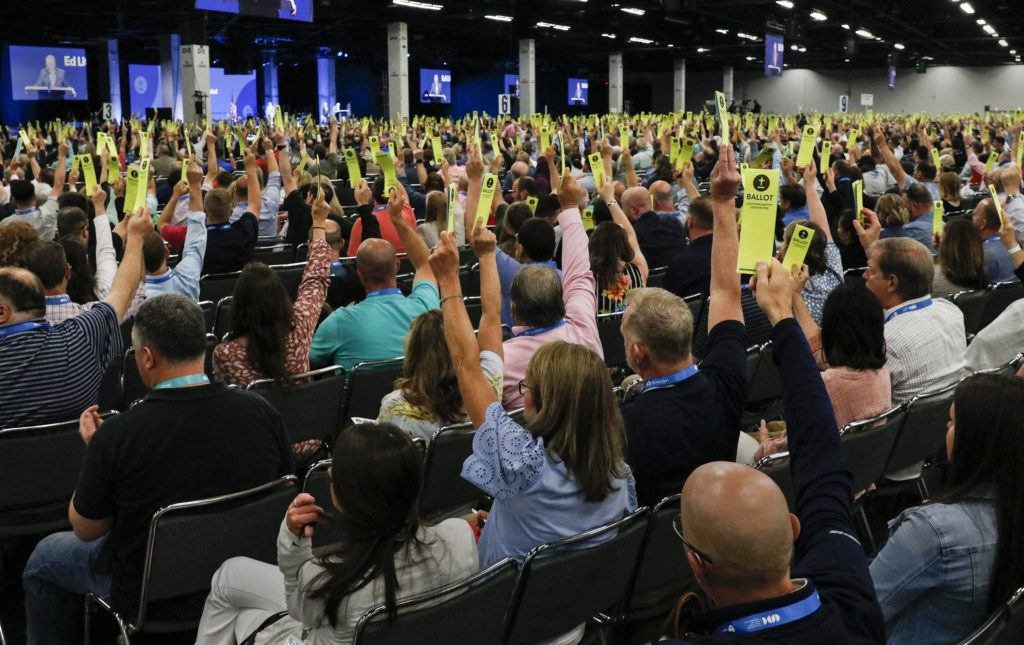Churches, do you know what to do if you suspect abuse?
We’ve heard horror stories about what not to do. But what are churches to do when abuse allegations arise within a church? This article from Baptist Press offers some guidance and steps we can all take for the safety of those in our ministry.
A church’s response to an allegation of abuse begins with a call to Child Protective Services. From there, it’s important to have an active partnership with civil authorities in addressing the case but also setting up long-term care for survivors.
“Becoming a Church that Cares Well for the Abused,” a handbook developed through the Caring Well initiative by Southern Baptists, includes contributions from those involved in addressing cases of abuse. Andrea Munford, deputy chief of Community Support at the Michigan State University of Police and Public Safety, is quoted in the handbook:
“Ministry leaders should recognize that after CPS has been notified, it is important to continue support to a victim and their caretaker by ensuring that the victim still feels welcomed by the church community.
“Though leaders will need to limit the number of people who know about a situation, it’s helpful to prepare church leaders who can give similar support and messaging, care ministry, children’s ministry, and security teams, for example, so that a child feels supported and safe at the church,” she said.
Munford, who was the lead investigator in the Larry Nassar abuse case, acknowledged that “sometimes information does get spread through a church, which could negatively impact the child’s social environment, sometimes even manipulated by the offender. Church leaders need to be aware that this could happen and have a plan to address it.”
Various elements of a case can determine, per CPS guidance, the pace at which details are revealed. The chapter “Ministry Tension” talks about how cooperation with civil authorities can, in fact, delay some aspects of ministry involvement.
“Church leaders can be frustrated when an attorney advises silence about the allegations until after a trial, when waiting on a series of hearings, or when a restraining order interferes with communication,” it said.
Public disclosure of a case of abuse where the offender is a church staff member or volunteer, for instance, or it occurred on church grounds or at a church-sanctioned event, can include many variables.
“Becoming a Church that Cares Well for the Abused” provides action steps in the chapter “Response to Abuse by a Church Leader.”
“Communicate with the congregation verbally and in writing informing them of the name of the abusive leader and the basic allegations,” it says. “This should be done specifically in consultation with law enforcement and knowledgeable experts. Ineffective communication could potentially harm the victim as well as the investigation.
“Although helpful communication can be tricky, leaders may need to inform the congregation of basic facts in order to encourage any additional victims to come forward.”
A document from the SBC’s Abuse Reform Implementation Task Force “is forthcoming,” task force member Brad Eubank told Baptist Press. The document will help guide churches on best practices for publicly addressing cases of abuse.
“There is already an excellent resource that churches can use right now to respond well found at www.churchcares.com,” he said. “It is an incredible resource with videos and experts in the field to help guide a church’s response. The (ARITF) document will only enhance and expand on what is shared in Church Cares.
“We want to continue to help churches be ready to respond and handle things the right way,” said Eubank, senior pastor of Petal First Baptist Church and a part of Mississippi Baptists’ sexual abuse response team.
The ARITF’s presentation at the 2024 Southern Baptist Convention Annual Meeting in June will introduce video-based training for churches, designed primarily for smaller congregations led by bivocational staff but helpful for churches of all sizes.
“We want to put as many tools as we can in their hands for what we pray will be a significant generational change,” Eubank said.
If you are/have been a victim of sexual abuse or suspect sexual abuse by a pastor, staff member or member of a Southern Baptist church or entity, please reach out for help at 202-864-5578 or SBChotline@guidepostsolutions.com. All calls are confidential.
Scott Barkley is national correspondent for Baptist Press.
This article originally posted on BaptistPress.com
Photo by Charlein Gracia on Unsplash


What should churches do if they suspect abuse?